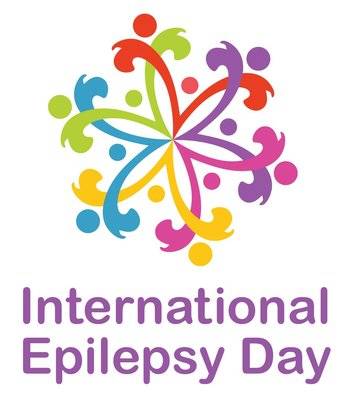
International Epilepsy Day 2023

February 10, 2023
What is epilepsy?
Epilepsy is a neurological disease affecting approximately 50 million people worldwide. It affects both men and women, regardless of race, ethnicity and age.
As we discussed in our recent news post, epileptic seizures are a manifestation of the cerebral hyperactivity that results from “hyperexcitation” of nerve cells, the neurons of the cerebral cortex. In some cases, the seizures are relatively subtle and can result in hallucinations (visual, auditory, gustatory or olfactory disturbances), especially in case of so-called “partial” seizures. Disorders of consciousness are common, in the form of short absences or total loss of consciousness.
The causes of epilepsy can be structural, genetic, infectious, metabolic, or immune. The underlying cause is unknown in about 50% of cases.
There are several forms of epilepsy. Epilepsy of the frontal lobe mainly affects young people (80% of patients are under 20 years of age), whereas epilepsy of the temporal lobe is more common in adults.
According to the World Health Organization (WHO), nearly 80% of people with epilepsy live in low- and middle-income countries, and 70% of people living with epilepsy may not experience seizures if properly diagnosed and treated. The mortality rate of people with epilepsy is three times higher than that of the general population.
The World Health Organization Global Action Plan
An Intersectoral Global Action Plan on epilepsy and other neurological disorders (2022 – 2031) (IGAP) has been developed by the WHO. Its objectives are to:
- Raise policy prioritization and strengthen governance
- Provide effective, timely and responsive diagnosis, treatment and care
- Implement strategies for promotion and prevention
- Foster research and innovation and strengthen information systems
- Strengthen the public health approach to epilepsy.
International Epilepsy Day
International Epilepsy Day is an event organized by the WHO, the International League Against Epilepsy (ILAE) and the International Bureau of Epilepsy (IBE) to “bring epilepsy out of the shadows”. Every second Monday in February, this annual campaign, which takes place in more than 140 countries, aims to raise awareness about epilepsy and its impact on individuals, families, and communities around the world.
In 2023, International Epilepsy Day focuses on the stigma faced by people with epilepsy. For many people, this stigma—often due to misconceptions and prejudices—is harder to manage than the disease itself.
This year, the campaign aims to dispel these myths and replace them with facts in order to reduce the stigma and discrimination faced by people with epilepsy, and help them have the same rights as everyone else: “Step Up Against Stigma!“
If you wish to participate, you can find the campaign kit in several languages on this website: https://internationalepilepsyday.org/resources/
Events organized for International Epilepsy Day: February 13, 2023
On and around this special day, several events are being organized around the world to support people with epilepsy and their loved ones, as well as to raise awareness about this disease. Information about these events can be found here: https://internationalepilepsyday.org/2023-events/
The expertise of Santé Active Edition – Synergy Pharm
Neurological diseases are one of the areas of expertise of Santé Active Edition – Synergy Pharm. Our medical writing team has recently conducted an interview with Dr. Benjamin Cretin on epilepsy for the “Observatoire B2V des Mémoires” (B2V Memory Observatory). In this article for the general public, this neurologist from the Centre Mémoire de Ressources et de Recherche (CM2R) of the University Hospital of Strasbourg explains what epilepsy is and the impact of epileptic seizures on memory in adults.
Sources:
- World Health Organization. Epilepsy
- Institut du Cerveau (Brain Institute). L’épilepsie : causes, mécanismes biologiques, symptômes, diagnostic et traitements
- Medisite. Épilepsie frontale : 3 symptômes à connaître
- Épilepsie France. Journée Internationale de l’Épilepsie
- International Epilepsy Day: https://internationalepilepsyday.org/
- Mayo Clinic. Epilepsy